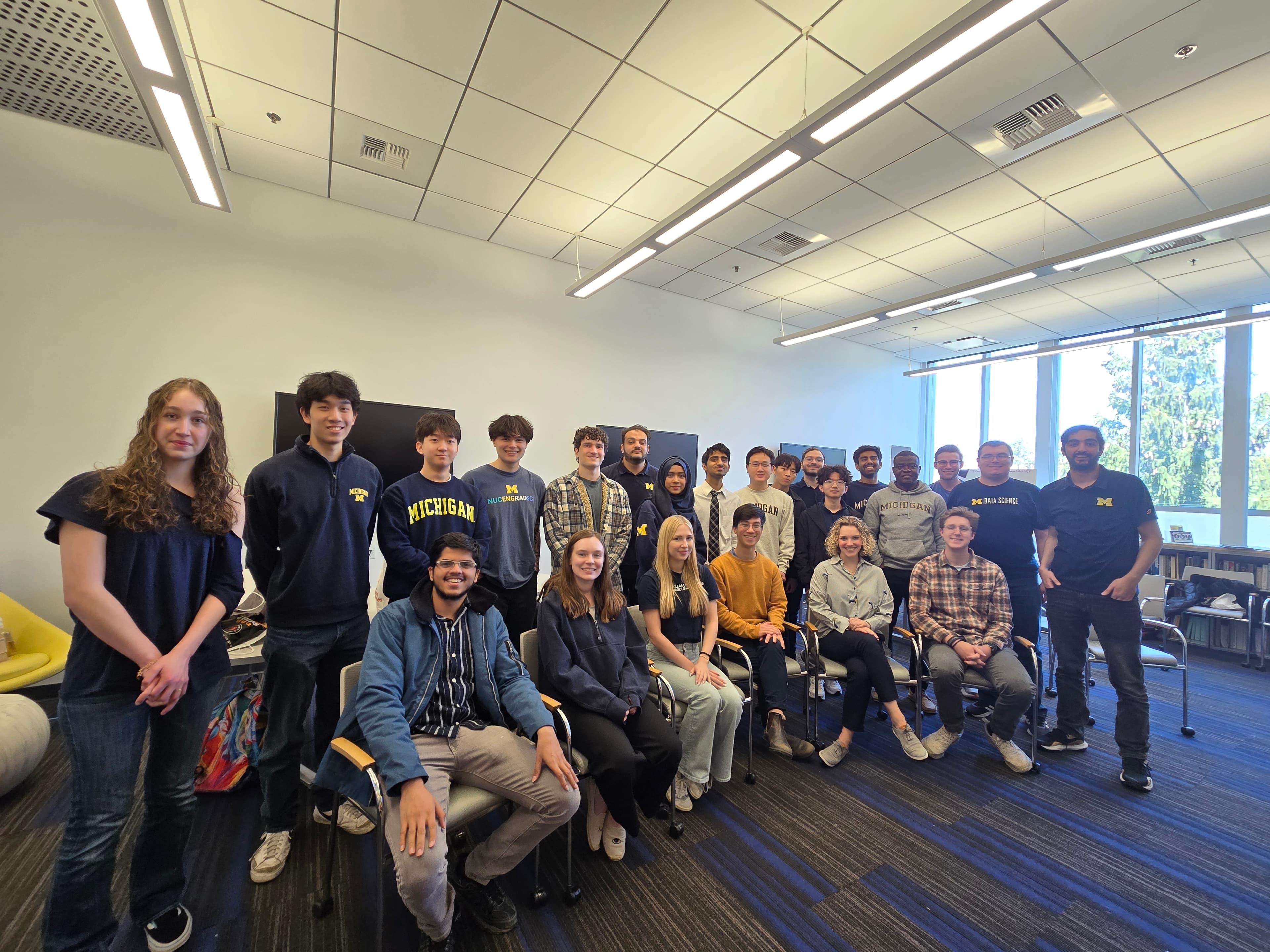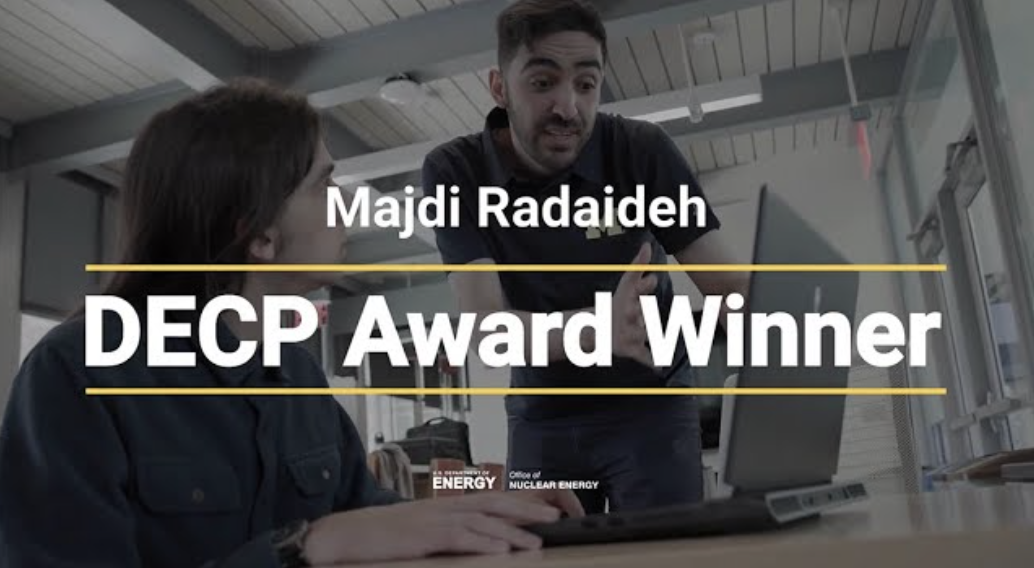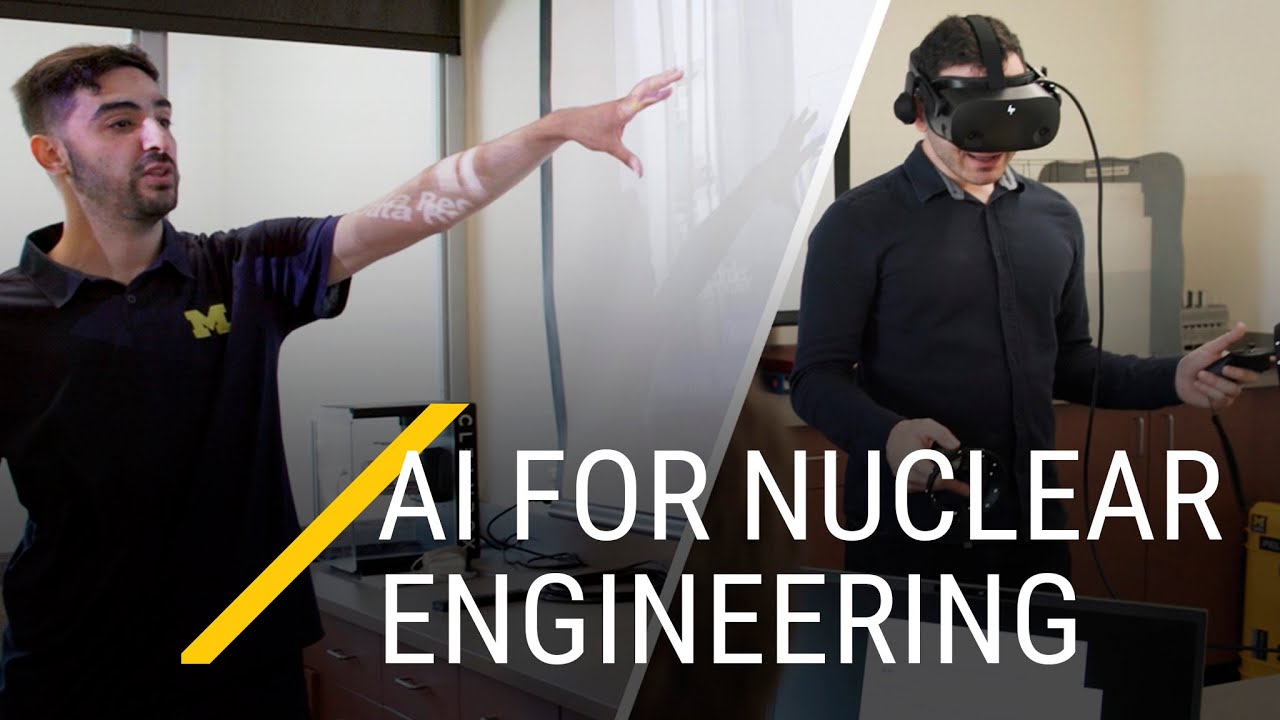
ABOUT THE LAB
The Intersection Of Artificial Intelligence and Nuclear Engineering.
We work at the intersection of nuclear engineering & computer science to develop scalable and deployable algorithms for optimization, control, and safety performance in complex systems like nuclear power plants.
Proud To Be Affiliated With
Core Values
Students usually join our group for two main reasons: they value the high quality of our research and publications, and they hear great things about our lab culture. In AIMS, we have five core values that we strive to maintain: Welcome, Support, Compete, Respect, and Listen.

Welcome
We welcome individuals from all backgrounds, cultures, and perspectives. Our lab thrives on openness, creating a supportive environment where everyone feels respected and can contribute their unique insights to our research.
Recently in AIMS
Research Focus
Our lab is split into three groups that have different research focuses and intersect heavily with each other. These groups are Reactors, Computing, and Controls. Our major accomplishments are showcased in the Software and Datasets portion of this website.
Meet Professor Majdi

Our People
Meet the talented researchers, scientists, and students who make our lab's groundbreaking work possible.
(View by Group)
Principal Investigators
Group Leads
Research Fellows and Scientists
Graduate Students
Undergraduates
Meet the Team

Where We Come From
Teaching Philosophy

Integrated Theoretical-Computational Approach
Enrolling in one of Prof. Radaideh's courses, you'll quickly find yourself immersed in hands-on learning—often in front of a computer, writing code or troubleshooting reactor simulations.
His teaching philosophy centers on an integrated theoretical-computational approach, where core theoretical concepts are immediately reinforced through practical application in a lab-based setting that extends throughout the semester.
Students gain experience with nuclear reactor simulation tools, programming, machine learning algorithms, and high-performance computing systems—all while deepening their understanding of the underlying theory.
NERS 442
Nuclear Power Reactors
NERS 462
Nuclear Reactor Safety
NERS 590
Applied ML for Nuclear Engineers
Our Sponsors
We are grateful to all our current and past sponsors for their support!
Want to Join Us?
Are you a PhD student looking for postdoc? Undergrad looking to continue graduate school? MS student looking for PhD? This is what you need to know about us!
Please email Professor Radaideh at radaideh@umich.edu with the subject line: "Joining AIMS Lab as a [Your academic status] - [Your name]"









































